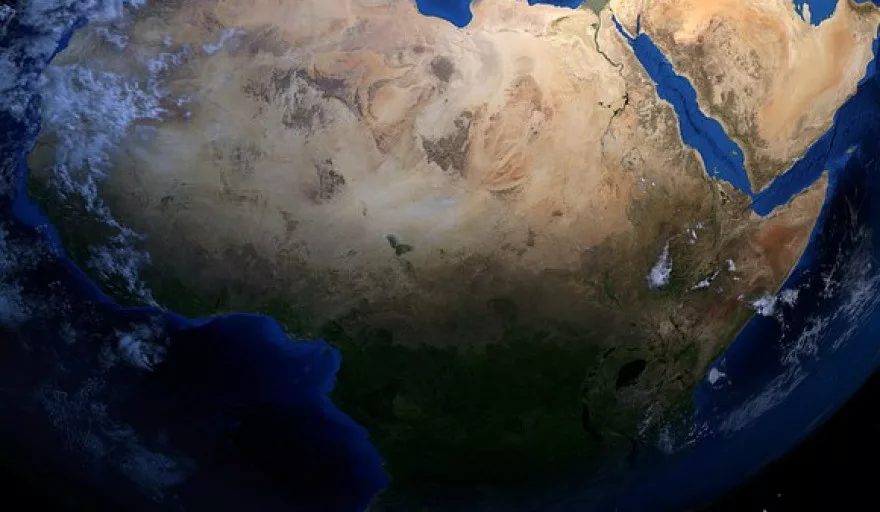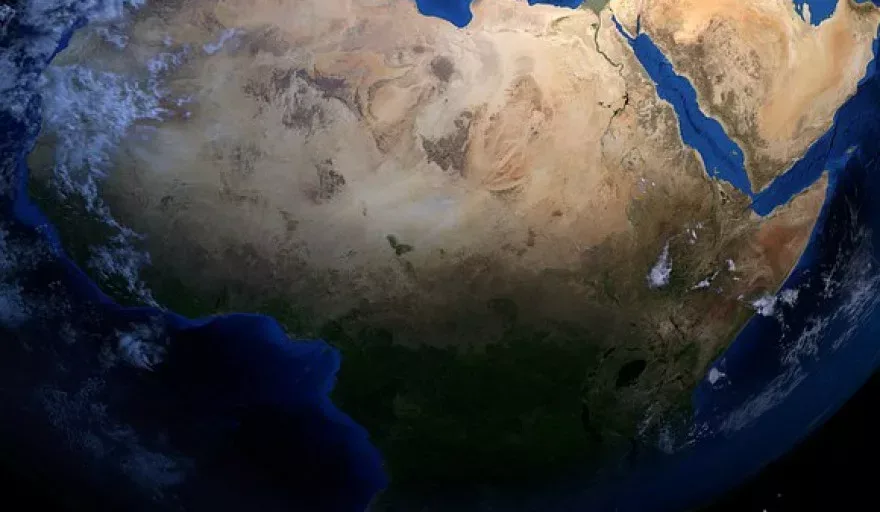
With Africa’s population set to increase from around 1.3 billion in 2018 to 1.7 billion by 2030, there can be little doubt that the challenges the continent already faces in respect of managing issues like food production and food supply security, not to mention access to clean drinking water, are only going to be exacerbated as we move forward.
We need to look at smarter ways to leverage technology in order to address these challenges. The situation requires a radical response that delivers a proactive, predictive and data-driven approach to addressing these issues with exponentially growing levels of speed and impact.
One only needs to look at the estimates from the South African Department of Water Affairs and Forestry, which indicates that the agricultural sector accounts for more than 50 percent of water use in South Africa and experience water losses of between 30-40 percent. Think about the beneficial impact on both farming and the population in general if ways could be found to reduce both water usage and water loss.
The Internet of Things (IoT) ecosystem, comprising of sensors, connectivity, data analytics, workflow automation platforms and applications lies at the heart of a new way of thinking that offers enormous promise to the continent in terms of addressing the challenges outlined above.
The IoT ecosystem is key to acquiring, analysing and harnessing insights that can be integrated into agriculture, service delivery, health and resource management processes, something which will not only improve life in Africa, but will ultimately have a significant and positive impact on continental economies.
For example, the IoT offers enormous potential in terms of enhancing agricultural productivity to meet food demand. Smart agriculture will utilise IoT-based technologies and solutions to boost operational efficiency, maximise yields and minimise wastage, thanks to real-time field data collection, data analysis and deployment of control mechanisms.
A good example here would be smart irrigation, where IoT-based measures could take into account various parameters – encompassing everything from moisture and humidity through to temperature and light intensity – to calculate the precise requirements for water. This will, in turn, contribute to higher irrigation efficiency and thus reduce water losses.
Using IoT-based soil monitoring systems, farmers will also be able to track and improve the quality of soil to avoid degradation and to minimise erosion, densification, salinisation, acidification and pollution by toxic elements. This should significantly improve crops and yields and thus should boost food security on the continent.
A similar approach can develop precision livestock farming, using the IoT to support real-time monitoring of productions, health and welfare of livestock to ensuring optimal yield. It is clear then that the IoT can make possible a future in which farmers can predict and prevent disease in livestock, view data on soil and crop conditions in near real-time and where machines can ensure crops are fed and watered without human intervention.
Of course, it is not only food, but water that poses a challenge for Africa, with around 200-million Africans using manual pumps to access clean drinking water. According to estimates, at least one-third of these pumps will break down at least once in its life cycle, and up to 70 percent will break in the second year of operation.
Therefore, using IoT sensors to capture the movements of the pumps’ handles, which is then analysed in real time, it is possible to predict pump malfunctions, allowing for better planning and shortening the time needed for repair, or even to avoid malfunctions altogether. This should have a massive impact on improving the access to clean drinking water for the rural population.
Of course, it must also be remembered that Africa’s urban population is increasing all the time as well. When it comes to this environment, the IoT underpins the very concept of the ‘Smart City’, where technology and machine-to-machine (M2M) communications can be leveraged to improve the quality of life and efficiency of communities.
The IoT offers a new hope when it comes to addressing stubborn challenges like reducing traffic congestion, fighting crime, promoting economic development, improving city services and making local governments more accessible and efficient.
And there are many other areas where the IoT – and the high-speed connectivity that is its foundation – can play a role in African development. The possibilities for healthcare, education and many other fields are only beginning to be discussed but are seemingly endless. And of course, there is one other factor in play here: successful IoT initiatives rely on specialised application development, and Africa is rife with young and ambitious entrepreneurs.
So, while the IoT is being used to solve many of the challenges the continent faces, there is also enormous potential for entrepreneurs to develop relevant applications that will not only play a role here, but more significantly, will enable them to build new businesses – thereby boosting the Africa’s economy at the same time.
Liquid Telecom realises that the future of sustainability and economic growth lies in technology and innovations such as the IoT. We provide high speed fibre connectivity to interconnect as well as access platforms to build IoT solutions, in addition to access to the Microsoft Azure suite for analytics and algorithm-based processing and execution. Furthermore, our Pan-African network enables collaboration and cross border innovation and learning, as well as the capability to efficiently scale out these solutions on Africa’s Liquid Cloud.
By Reshaad Sha, CEO of Liquid Telecom South Africa

























